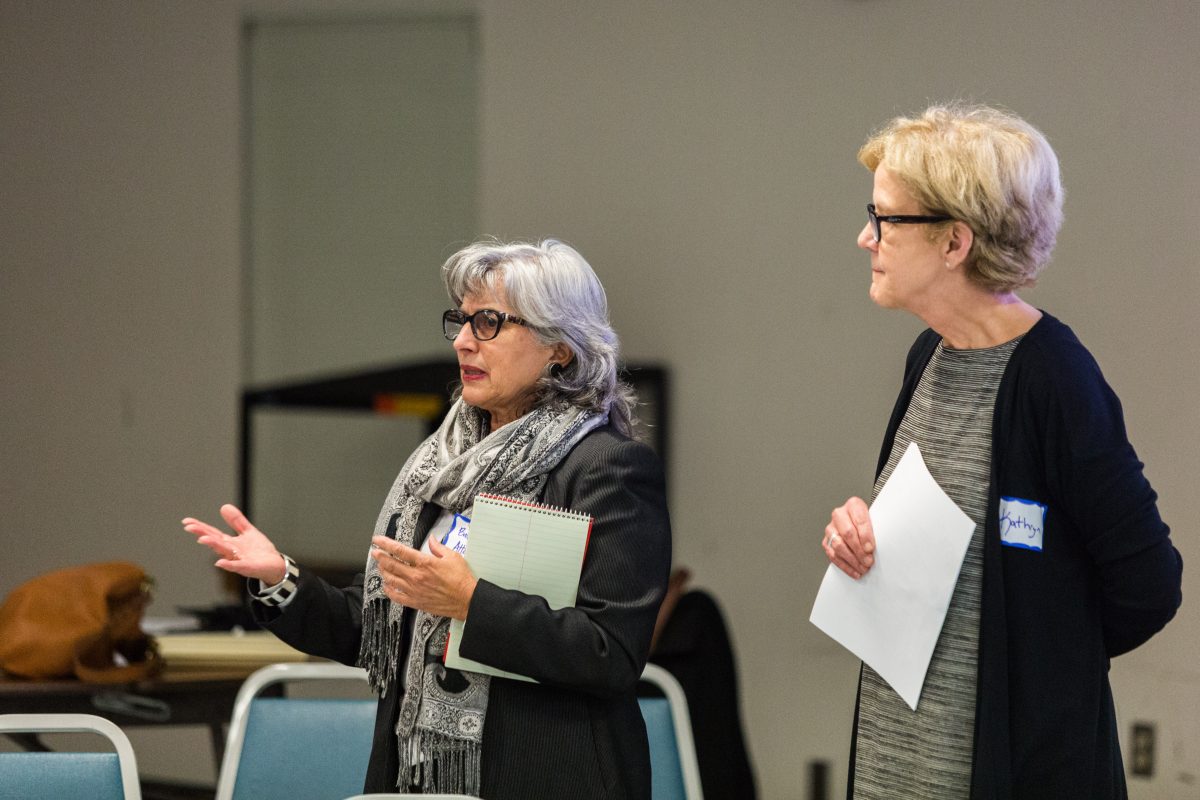
Last summer two separate but related events came together. The long-time Davis Police Auditor, Bob Aaronson, ended his tenure with the city of Davis at the end of June. Second, the Picnic Day incident put the issue of policing and police oversight into focus for the city.
As a result, in July the council directed staff to hire a short-term consultant to review the current system and the history, and participate in a number of public or sponsored forums to come up with a model and recommendations for revamping the city’s oversight system.
That process is now nearing completion and so, interestingly enough, at the same time the council will receive a report from the interim auditor on the 2017 Picnic Day incident, they will also receive recommendations from the consultants Barbara Attard and Kathryn Olson. The consultants are recommending a duel oversight structure, that includes a revised and enhanced Independent Police Auditor position and the creation of a Davis Police Accountability Board.
In their report they write: “After hearing from a wide spectrum of stakeholders, considering other oversight programs, and at the direction of the City Council, the Consultants recommend a two-part police oversight program for Davis.”
First, the consultants recommend “clarifying expectations of the Davis Independent Police Auditor position in place” and expanding “IPA authority in all aspects of the position – to include increased review of the complaint process, expanded audit authority, community outreach, and reporting.”
And second, Davis should incorporate a “community representative body that is involved with shaping priorities for the IPA, collaborating with the IPA on policy review and recommendations, and  working with the IPA in developing and conducting robust community outreach – this entity is referred to as the Davis Police Accountability Board (DPAB), for purposes of this report.”
working with the IPA in developing and conducting robust community outreach – this entity is referred to as the Davis Police Accountability Board (DPAB), for purposes of this report.”
The consultants note that there are a number of issues raised at the stakeholder meetings. These included “the lack of confidence in the police misconduct complaint process, concerns that certain populations were unfairly targeted by DPD for enforcement actions, and the need for more transparency about both the Police Department and oversight efforts.”
They write, “The recommended oversight system will have the responsibility of continuing to monitor complaint processing, conducting robust auditing of DPD, and fostering improved communication with all stakeholders.”
“Ultimately,” they write, “accountability, transparency, and legitimacy of both policing and oversight in Davis should be enhanced through this two-pronged approach.”
According to the consultants, the work of the previous IPA was praised, including from the police department, “where the IPA’s input was viewed as improving the quality of complaint investigations.”
However, there was concern that reports were not received from the IPA on any regular basis, “and the IPA was not required to document his work and regularly share highlights with the community.”
They believe this “cut against factors important to successful oversight, including transparency, independence, and trust in the process.”
Thus, “the recommended authority for the rebranded IPA builds on the strengths of the existing program, and includes rigorous auditing, reporting, and outreach.”
Thus the recommendation is that the IPA would do the following (see page 23 to 26 of the report for additional information):
- Review DPD Misconduct Complaints
- Limited Investigative Authority
- Auditing of DPD Misconduct Complaint and Discipline Process
- Notice of Death, Serious Injury, or Other Critical Incidents
- Audits of DPD Policies, Procedures, and Training
- Policy, Procedure, or Training Recommendations
- IPA Reports
- Outreach
- Collaboration with DPAB
In addition to revamping the IPA, “There has been community interest in expanding public participation in Davis police oversight for over a decade. Formalizing a process to build on the dialogue that occurred during this project by providing a community perspective and a means for input on policing moving forward can increase confidence in the oversight program and policing.”
Recommendations for DPAB authority include:
- Provide annual written input to the City Manager on the effectiveness of the IPA.
- Coordinate with the IPA to identify and prioritize topics for IPA auditing.
- Collaborate with the IPA on recommendations for improvement to DPD policy, procedure, and training.
- Work with the IPA to review new or changes to DPD policies.
- When time permits, respond to DPD requests for input on matters outside IPA/DPAB priorities, such as commenting on new programs.
- Work with the IPA to develop and execute an annual outreach plan.
- Hold regular meetings and provide notice and an opportunity for community input.
- Coordinate with the IPA for regular reporting to the City Manager and City Council.
- Work with the IPA and DPD to promote ACR/mediation as a complaint resolution option.
The consultants write, “In recommending the two-pronged IPA and DPAB approach to oversight, the Consultants recognize the unique contributions each model provides.” They note that the “the IPA will bring a measure of expertise to the oversight process, while the DPAB helps to ensure that community values are incorporated.
“The various authorities recommended for each oversight entity share the goal of maximizing the combined positive impact of the IPA and DPAB on police accountability,” they write. Finally, “the Consultants built in an expectation of collaboration and checks and balances between the IPA and DPAB, to foster accountability and transparency in the oversight system itself, and to build trust and support from the community, DPD, and government stakeholders.”
The council on Tuesday will now be asked to receive the report and consider the recommendations for the dual oversight structure.
—David M. Greenwald reporting







Sounds to me like more filler to hide the horse meat. Instead of one police auditor to cover up and obstruct you create a whole bureaucracy to do the dirty work.
This is pretty close to the model a group of us wanted 12 years ago when the council implemented the police ombudsman.
That’s part of the problem with Davis politics, too many times we kowtow to some activist group that really isn’t representative of the community as a whole.
Well these are two oversight professionals with probably a combined 50 years of experience, they met with at least 250 people individuals and had five public forums, I would say they had a combination of due diligence and professional experience to guide them. What is your specific objection to the recommendation?
Two, among more than a dozen, fatal flaws associated with a proposal for having four simultaneous control and management measures for the Police Department:
The bulleted items, the creators of this proposal should be directed to compile a time-line on how long it’s required for all of the reform measures will be eventually be accomplished. The basic unit of measure should be, “years.” And then they prepare a budget estimate of the hard and soft-dollar costs required to move this idea from conceptual to functional reality, followed by yearly maintenance estimates. Begin with the thousands of cumulative hours of scores of persons diverted from vital operational responsibilities elsewhere to attending innumerable meetings. Assume, of course, all these components during implementation will work in perfect harmony, and the process will go forth seamlessly.
The bulleted items, show them to any competent labor attorney. Ask how many can be implemented without concern over current federal and state labor law, and existing labor contract agreements.
Phil… give it up… you are trying to be the adult in the room, and you make too damn much sense…